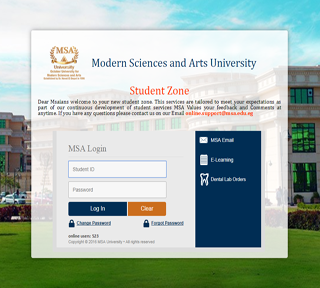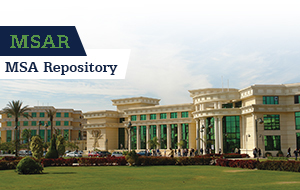COMPUTER SYSTEMS ENGINEERING (CSE) PROGRAM

Program Aims:
The Computer Systems Engineering (CSE) program is a discipline that embodies the science and technology of design, construction, implementation, and maintenance of software and hardware components of modern computing systems and computer-controlled equipment. Computer systems engineering has traditionally been viewed as a combination of both computer sciences (CS) and Computer engineering (CE).
Computer systems engineering is a field that experiences effects from rapid technological development in different real life applications.
The program aims for the computer systems engineering graduate to be:
• Trained to be proficient in the design and implementation of computer systems, both hardware and software.
• Design digital control circuitry and program it to function correctly.
• Knowledgeable in related mathematics, physics sciences, electrical, electronics, communications, computer hardware and software, networking and other engineering concepts and systems.
Expert through practicing the discipline concepts in solving problems of real applications. This level of expertise should be permanently upraised by engaging in life-long learning processes. Our department program is fully validated by the University of Greenwich in the UK and the British Quality Assurance Agency. Our graduates receive two certificates; one from MSA accredited by the Egyptian Supreme Council of Universities and the Egyptian Engineering Syndicate and another by the University of Greenwich.
Welcome from the Department's program leader:
 Welcome to our website. I would like to thank you for taking some time to learn more about the Computer System Engineering department (CSE). We offer an environment where motivated students can excel academically and get the preparation, they need to be successful in their careers. Our courses of study include but not limited to:
Artificial Intelligence (AI), IoT, Machine learning, Cloud computing, Data science, and software compiler design courses. We believe that an education in CSE at MSA is more than just learning material in the classroom. A vital part of our education is the community of scholars that students join when they enter our program.
Engineering and Computer Science are disciplines closely connected to technology and industry. We have wide link with the industry experts and executives, who provide broad oversight, valuable advice, and clear direction to our program industrial and practical projects. Our students also have great opportunities for summer internships with companies. A majority of our students participate in a paid multiple-week, on-site internship experience with a participating industry partner. Often the first job offer before graduation comes from the internship employer.
A vital connection for students during their time in one of our programs is their interaction with faculty. We have faculty who care about their students. Faculty not only spend time teaching students in class, but also spend time serving as advisors for student organizations, advising students on career goals, and participating in student mission trips. Each year, our faculty members are recognized for teaching, research, and service achievements within MSA and by national professional organizations. We are very proud of our graduates. Besides heading for high-paying industry jobs.
Dr. Samer Ibrahim Mohamed, FHEA, PMP, ITIL.
Welcome to our website. I would like to thank you for taking some time to learn more about the Computer System Engineering department (CSE). We offer an environment where motivated students can excel academically and get the preparation, they need to be successful in their careers. Our courses of study include but not limited to:
Artificial Intelligence (AI), IoT, Machine learning, Cloud computing, Data science, and software compiler design courses. We believe that an education in CSE at MSA is more than just learning material in the classroom. A vital part of our education is the community of scholars that students join when they enter our program.
Engineering and Computer Science are disciplines closely connected to technology and industry. We have wide link with the industry experts and executives, who provide broad oversight, valuable advice, and clear direction to our program industrial and practical projects. Our students also have great opportunities for summer internships with companies. A majority of our students participate in a paid multiple-week, on-site internship experience with a participating industry partner. Often the first job offer before graduation comes from the internship employer.
A vital connection for students during their time in one of our programs is their interaction with faculty. We have faculty who care about their students. Faculty not only spend time teaching students in class, but also spend time serving as advisors for student organizations, advising students on career goals, and participating in student mission trips. Each year, our faculty members are recognized for teaching, research, and service achievements within MSA and by national professional organizations. We are very proud of our graduates. Besides heading for high-paying industry jobs.
Dr. Samer Ibrahim Mohamed, FHEA, PMP, ITIL.
CSE department head.
Fellow of UK Higher Education Academy
Associate editor: Journal of Computer Science Technology Updates
MSA University.
An Overview of the Program:
The program includes a number of courses and each course has a specific weight in credit hours
- On average, each course has a weight of 3 credit hours.
- In addition to the first year as being a general year to all programs, the advancement through the program courses is distributed progressively throughout the four-year plan.
- Students cannot register for a course unless the course’s prerequisites are met.
- In order for a student to graduate from any one of the two program, he/she has to successfully complete all the required courses for this program plus the general year, with a total of 168 credit hours.
- Students can complete all required credit hours over a minimum of 4 years when enrolled for 2 semesters each year, Fall and Spring. The Summer semester is optional and offered for a limited num




